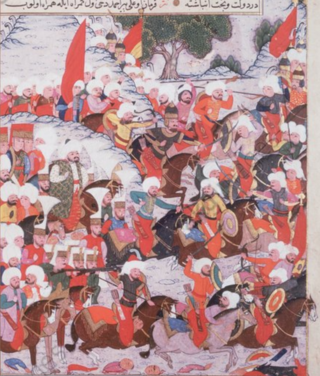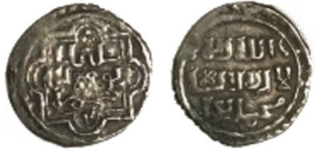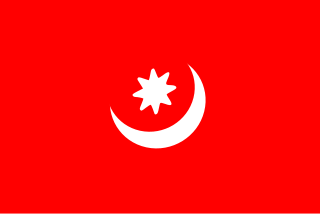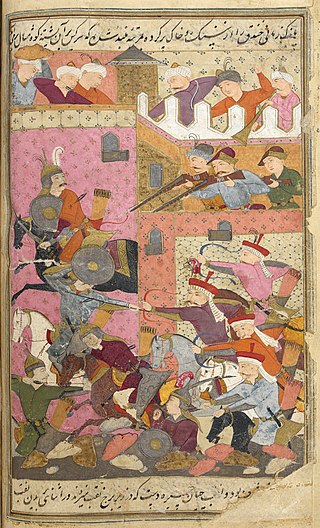Places
- Yakupbey, Meriç, a village in Edirne Province, Turkey
Yakub Beg, Yakub Bey, or Ya'qub Beg may refer to:

Muhammad Yakub Beg, later known as Yakub Padishah, was the Kokandi ruler of Yettishar (Kashgaria), a state he established during his invasion of Xinjiang from 1865 to 1877. He was recognized as Emir of Yettishar by the Ottoman Empire and held the title of "Champion Father of the Faithful".
Uzun Hasan or Uzun Hassan was a ruler of the Turkoman Aq Qoyunlu state and is generally considered to be its strongest ruler. Hasan ruled between 1452 and 1478, and would preside over the confederation's territorial apex when it included parts or all of present-day Iraq, Turkey, Azerbaijan, Iran, Transcaucasia and Syria.
Uthman Beg or Osman Beg was a late 14th and early 15th-century leader of the Turkoman tribal federation of Aq Qoyunlu in what is now eastern Turkey, Iran, Azerbaijan and Iraq.

Farrukh Yasar was the last independent Shirvanshah of Shirvan (1465–1500). In 1500, the first Safavid ruler, Ismail I, decisively defeated and killed Farrukh Yasar during his conquest of the area. Descendants of Farrukh Yasar continued to rule Shirvan under Safavid suzerainty, until 1538, when Ismail's son and successor Tahmasp I appointed its first Safavid governor, and made it a fully functioning Safavid province.

The Aq Qoyunlu or the White Sheep Turkomans was a culturally Persianate, Sunni Turkoman tribal confederation. Founded in the Diyarbakir region by Qara Yuluk Uthman Beg, they ruled parts of present-day eastern Turkey from 1378 to 1503, and in their last decades also ruled Armenia, Azerbaijan, much of Iran, Iraq, and Oman where the ruler of Hormuz recognised Aq Qoyunlu suzerainty. The Aq Qoyunlu empire reached its zenith under Uzun Hasan.

Hasanali, also known as Sultan Hasanali or Hasanali Beg — was the last sultan of the Qara Qoyunlu state and the son of Jahan Shah Haqİqi. After the assassination of Jahan Shah on November 10, 1467, Hasanali attempted to restore Qara Qoyunlu rule in the south of Azerbaijan but was killed in 1469 before achieving this goal.

The Battle of Otlukbeli or Otluk Beli was fought between Aq Qoyunlu and the Ottoman Empire on August 11, 1473.
Yakub, Yaqub, Yaqoob, Yaqoub, Yacoub or Yakoub is a male given name. It is the Arabic version of Jacob and James. The Arabic form Ya'qūb/Ya'kūb may be direct from the Hebrew or indirectly through Syriac. The name was in use in pre-Islamic Arabia and is a common given name in Arab, Turkish, and Muslim societies. It is also used as a surname. It is common in Polish, Czech and Slovak languages, where it is transliterated as Jakub.
Yakub II, also known as Yakub Chelebi, was Bey of Germiyan in western Anatolia from 1387 to 1390, 1402 to 1411, and 1414 until his death. Yakub was the patron of several literary and architectural works produced during his reign.
Yakub I was the founder of the beylik of Germiyan, located in western Anatolia around Kütahya. Although Germiyan revolted against Mesud II of the Sultanate of Rum, Yakub accepted vassalage under Kayqubad III. The Sultanate of Rum disintegrated shortly after. At that point, Yakub's realm extended as far east as Ankara and incorporated various towns taken from the Byzantine Empire and the Catalan Company. Yakub was the suzerain of many of his neighbors, and his reign was described as economically prosperous by contemporary historians. He was succeeded by his son Mehmed, nicknamed Chakhshadan.

Suleiman Shah, also known as Shah Chelebi, was Bey of Germiyan in western Anatolia from 1361 until his death. His reign was initially peaceful, but he was eventually involved in a conflict with the Karamanids, which forced him to seek an alliance with the Ottoman state. He arranged the marriage of his daughter Devletşah Hatun and Murad I's son and future successor, Bayezid. Although he secured an alliance with the Ottomans, Germiyan lost considerable land as Suleiman left numerous towns and smaller settlements for them to seize, including the capital Kütahya, as part of the dowry payment. Suleiman relocated to Kula and died there in 1387.

Yaqub b. Uzun Hasan, commonly known as Sultan Ya'qub was the ruler of the Aq Qoyunlu from 1478 until his death on 24 December 1490. A son of Uzun Hasan, he became the ruler of the dynasty after the death of his brother Sultan Khalil. The borders of Aq Qoyunlu dynasty remained stable during his reign. In his book Alam-Aray-i Amini, Fazlallah Khunji Isfahani praised him as a decent successor of Uzun Hasan. Ya'qub received praise from other historians for supporting poets and scientists.

Yettishar, also known as Kashgaria, was a Turkic state that existed in Xinjiang from 1864 to 1877, during the Dungan Revolt against the Qing dynasty. It was an Islamic monarchy ruled by Yakub Beg, a Kokandi who secured power in Kashgar through a series of military and political manoeuvres. Yettishar's eponymous seven cities were Kashgar, Khotan, Yarkand, Yengisar, Aksu, Kucha, and Korla.

Sultan Khalil Mirza was a sultan of the Aq Qoyunlu State, ruling from 6 January 1478 to July 1478.
Jalal ad-Din Ali ibn Qara Yoluq Osman, or Ali Beg was the sixth bey of the Turkoman tribal federation of the Aq Qoyunlu from 1435 to 1438.
Fakhr al-Din Qutlugh-bey was the second Aq Qoyunlu bey, ruling from 1362-1389. His full name was Haji Fakhr al-Din Kutlug ibn Tur Ali-bey.

Alvand Mirza Beg was an Aq Qoyunlu prince, who was a contender for the throne between 1497 and 1504/5.

Ughurlu Muhammad Beg or Ughurlu Mehmed was a prince of the Aq Qoyunlu, son of Uzun Hassan and Jan Khatun. As the eldest son to Uzun Hasan, he governed the city of Shiraz and desired to be the ruler of the Aq Qoyunlu after the death of his father. Nevertheless, his stepmother Seljuk Shah Khatun, another wife of Uzun Hasan, prevented this. She always slandered Ughurlu Muhammad to Uzun Hasan to favor her own son, Khalil. Afterwards, he rebelled against his father and took refuge to the Ottoman Empire. Mehmed the Conqueror welcomed him and got him married to his daughter Gevherhan Hatun. Ahmad Beg was born from this marriage. Mehmed II gave him Sivas to rule, but was killed near Erzincan in the year 1477.

Sultan Murad was the last sultan of the Aq Qoyunlu from 1497 to 1508. After losing his kingdom to the Safavid Shah Ismail I, he fled to Diyar Bakr, where he was eventually killed by Shah Ismail's Qizilbash soldiers at the end of 1514.

Ahmad Göde or Gövde Ahmad, born Sultanzade Ahmed and commonly known as Ahmad Beg or Sultan Ahmad, was a ruler of the Aq Qoyunlu.